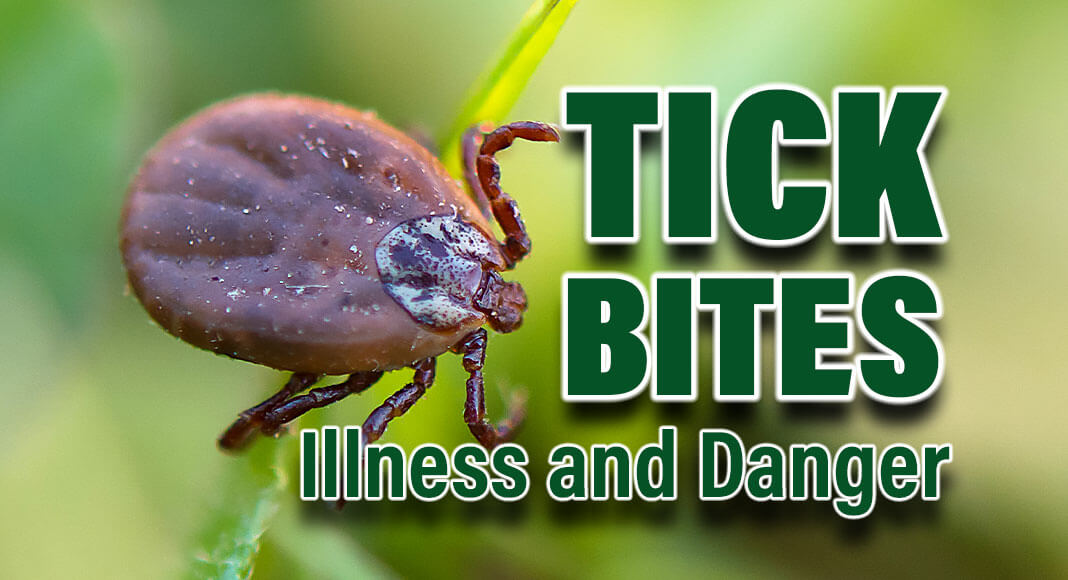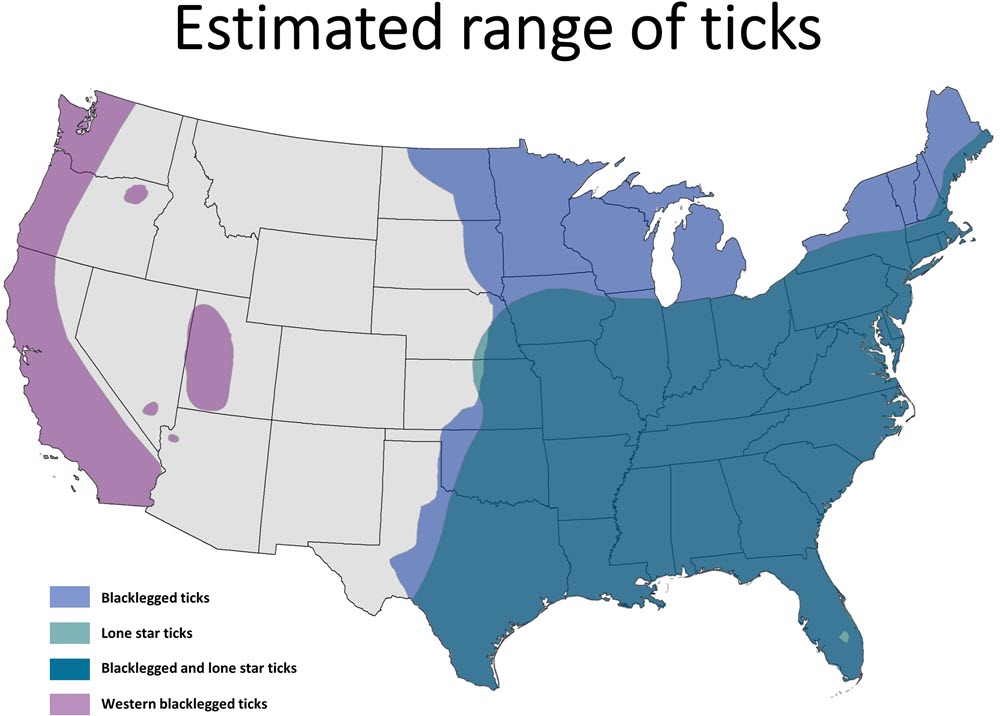
Mega Doctor News
Ehrlichiosis and anaplasmosis are two tickborne diseases that might not be on your radar, but they should be. In fact, anaplasmosis is now the second most commonly reported tickborne disease after Lyme disease. Tickborne diseases are reported more frequently, and the ranges of certain tick species are expanding, placing more people at risk for tickborne disease. Being aware of the tickborne disease risk in your area and taking key steps to prevent tick bites can help keep you and your family safe this tick season.
Know about tickborne disease risk in your area.

Most of the country, including the Northeast, Midwest, South, and portions of the West are home to one or more tick species known to spread the germs that cause ehrlichiosis and anaplasmosis.
- Blacklegged and Western blacklegged ticks spread the germ that causes anaplasmosis. Blacklegged ticks in Wisconsin and Minnesota have also been shown to spread an Ehrlichia germ called Ehrlichia muris eauclairensis.
- Lone star ticks spread two kinds of Ehrlichia germs (Ehrlichia chaffeensisand Ehrlichia ewingii).
Ticks can be active year-round, but ticks are most active during warmer months (April–September). CDC’s new tick bite data tracker helps track tick bites by region, week, age, and sex.
Signs and symptoms
Illness typically begins within 1–2 weeks following the bite of an infected tick. Tick bites are usually painless, and many people do not remember being bitten.
Early signs and symptoms of both ehrlichiosis and anaplasmosis usually include:
- Fever or chills
- Severe headache
- Muscle aches
- Nausea, vomiting, diarrhea, loss of appetite
- Rash (more common in patients with ehrlichiosis)
Treatment
Ehrlichiosis and anaplasmosis can become severe when not treated early. See your healthcare provider right away if you develop fever, headache, or rash. Be sure to tell your provider if you remember being bitten by a tick or spending time in areas where ticks may be found. When recognized and treated early, most patients with ehrlichiosis and anaplasmosis will recover fully within days to weeks. The CDC and the American Academy of Pediatrics (AAP) recommend doxycycline as the treatment of choice for ehrlichiosis and anaplasmosis in patients of all ages.
Prevent tick bites
There is no vaccine to prevent ehrlichiosis or anaplasmosis. Prevent illness by preventing tick bites.
Before you go outdoors
- Know where to expect ticks.
- Treat your clothing and gear with 0.5% permethrin.
- Use Environmental Protection Agency (EPA)-registered insect repellents on your skin.
- Treat your dogs for ticks using veterinarian-approved tick prevention products.
After you come indoors
- Check your clothing and gear for ticks.
- Tumble dry clothes in a dryer on high heat for 10 minutes to kill ticks on dry clothing after you come indoors.
- Shower soon after being outdoors.
- Check your body for ticks.
- If you find an attached tick remove it immediately. When possible, use fine tipped tweezers to grasp the tick close to the skin’s surface and pull straight up.
- Keep an eye out for fever or rash for 30 days following a tick bite
Information Source: CDC











